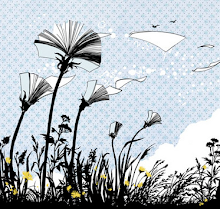(2003) Pg. 405
Cut to the Chase 4.5 out of 5
My favorite kind of books are those that you read in a couple of days, not because they're considered an "easy read," but because you're compelled to read late into the night, long after you know you should have gone to sleep. This is what Sunshine was like for me. Sassy and a little gritty, Sunshine was the first female protagonist I've liked and identified with in a long time. With this tone carried throughout, McKinley captivated me not only with her characters but with a unique world where magic is fairly common and we've "won" a war with "the others" (vampires, weres, and an assortment of other magical creatures) practically by the skin of our teeth. With faint flavors of a post-apocalyptic setting, the town of New Arcadia is a perfect mix of the traditional dark gothic vampire novel and gritty punk attitude.
Another thing I appreciated about Sunshine was that the plot did not progress in the way I dreaded it might, but that's all I can say without spoiling too much. Though being a basically plot-driven novel with no deep sustenance of a new classic, Sunshine was still an engrossing read that I would suggest to any lover of real vampires and dark fantasy.

